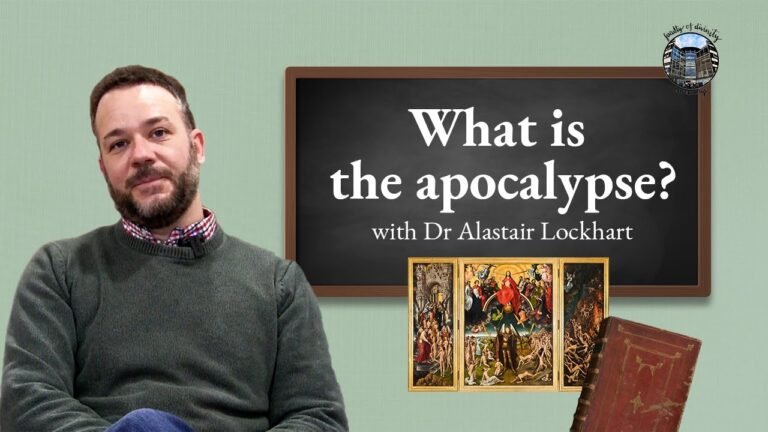Defining the Apocalypse: Understanding Its Meaning and Implications
In a world increasingly captivated by tales of survival and transformation, the term apocalypse defined has evolved beyond its biblical roots to encompass a broader spectrum of meanings. This concept, often associated with catastrophic events and the end of civilization as we know it, invites us to explore not only the dramatic conclusions but also the profound beginnings that emerge from chaos. As we delve into the multifaceted interpretations of apocalypse, we uncover a narrative that challenges our understanding of endings and invites us to envision new possibilities for the future.
What does apocalypse truly mean?
The term “apocalypse” often evokes images of cataclysmic events and the end of civilization as we know it. Rooted in ancient texts, particularly the Biblical book of Revelation, it signifies not just an end, but a profound transformation of existence. In this context, the apocalypse serves as a powerful metaphor for both literal and figurative destruction, highlighting moments when life as we understand it is fundamentally challenged or altered.
Beyond its biblical implications, the concept of the apocalypse resonates in various cultural narratives, often representing humanity’s deepest fears and aspirations. It encapsulates the idea of renewal following devastation, suggesting that from the ashes of destruction, new beginnings can emerge. Whether through natural disasters or societal upheaval, the apocalypse prompts reflection on resilience, hope, and the potential for rebirth in the face of overwhelming odds.
What are the four components of the apocalypse?
The concept of the apocalypse is often depicted through the vivid imagery of the Four Horsemen, each symbolizing a distinct aspect of humanity’s end. The first horseman embodies conquest, representing the insatiable pursuit of power and control that can lead to conflict and division. This relentless drive can unsettle societies, igniting tensions that may spiral into chaos.
Following conquest is the horseman of war, a stark reminder of the destruction that arises from human conflict. War not only devastates nations but also tears apart communities and families, leaving a lasting scar on civilization. The presence of this horseman signifies the inevitable clash of interests and ideologies, emphasizing the fragility of peace.
The third horseman, famine, illustrates the dire consequences of scarcity and mismanagement of resources. As food becomes increasingly scarce, desperation sets in, leading to social unrest and further violence. Finally, the fourth horseman, death, looms over all, a poignant reminder of mortality itself. Together, these four figures encapsulate the harrowing journey of humanity through the trials of the apocalypse, each contributing to an inevitable cycle of destruction and rebirth.
What does the Bible say about the apocalypse?
In the Bible, the concept of an apocalypse signifies a profound encounter with the divine, where individuals are unveiled to the transcendent reality of God’s perspective. This intense confrontation reshapes their understanding, leading to a radical transformation in how they perceive the world around them. Such experiences often illuminate hidden truths and challenge existing beliefs, making the apocalypse a pivotal moment of revelation and change in one’s spiritual journey.
Unraveling the Significance of the End Times
The concept of the End Times captivates the human imagination, stirring deep-seated fears and hopes alike. This pivotal period, often depicted in religious texts and philosophical discussions, challenges us to confront the fragility of our existence and the moral choices we make. As we navigate a world marked by rapid change and uncertainty, the significance of the End Times serves as a reminder to reflect on our values, relationships, and the legacy we wish to leave behind. Engaging with these themes encourages a collective awakening, inspiring us to seek purpose and unity in the face of inevitable transformation.
Exploring the Consequences of a World Transformed
As humanity navigates the complexities of a rapidly transforming world, the consequences of our actions become increasingly profound. The convergence of technology and environmental challenges has reshaped our societies, compelling us to rethink traditional paradigms. From urban landscapes to rural settings, the integration of smart solutions and sustainable practices is not just an option but a necessity for survival. The urgency of addressing climate change and resource depletion has prompted a collective reevaluation of our priorities, urging us to adopt innovative approaches that prioritize both progress and preservation.
In this new era, the implications of our choices ripple through every facet of life. The rise of artificial intelligence and automation presents both opportunities and ethical dilemmas, as we grapple with the balance between efficiency and employment. Meanwhile, the digital divide exacerbates existing inequalities, highlighting the critical need for inclusive access to technology. As communities strive to adapt, the importance of collaboration and shared knowledge becomes evident, fostering resilience in the face of uncertainty. The interconnectedness of global challenges requires a united front, emphasizing the power of collective action in driving meaningful change.
Looking ahead, the vision for a transformed world hinges on our ability to embrace adaptability and innovation. Education systems must evolve to prepare future generations for a landscape defined by rapid technological advancements and shifting societal norms. Sustainable practices must become ingrained in our daily lives, guiding consumption and production towards a more harmonious coexistence with nature. Ultimately, the choices we make today will shape the legacy we leave behind, underscoring the importance of intentionality in our quest for a better future. By approaching these challenges with creativity and collaboration, we can forge a path toward a more equitable and sustainable world for all.
A Comprehensive Guide to Apocalyptic Concepts
In a world increasingly captivated by the notion of apocalyptic scenarios, understanding the diverse concepts that underpin these narratives becomes essential. From biblical prophecies to scientific predictions, apocalyptic themes resonate deeply, reflecting our fears and aspirations for the future. Whether exploring the catastrophic potential of climate change, the allure of dystopian literature, or the philosophical implications of existential threats, these concepts challenge us to confront the fragility of civilization and the resilience of the human spirit. Engaging with these ideas not only enriches our cultural literacy but also prepares us to navigate the uncertainties of our rapidly changing world.
Understanding the concept of the apocalypse defined not only enriches our grasp of cultural narratives but also prompts us to reflect on our values and priorities in an ever-changing world. As we navigate the complexities of modern life, these interpretations challenge us to consider what truly matters, urging a collective reimagining of our future. Embracing this dialogue can inspire hope and resilience, transforming fear of the unknown into a catalyst for positive change.







